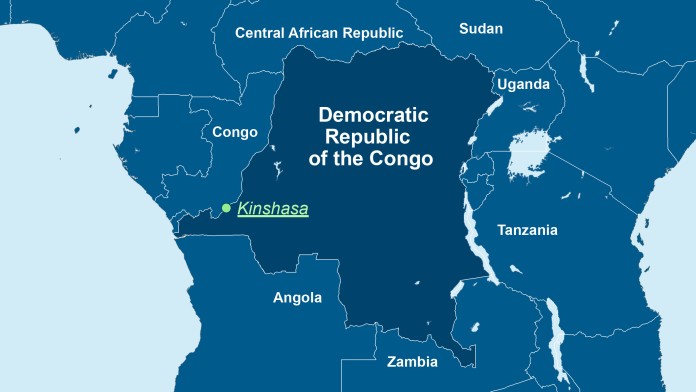

The D.R. Congo, Africa’s second largest nation, has large reserves of raw materials such as copper, diamonds or cobalt, so mining is one of its most important sources of income. However, its potential has barely been exploited to date. The country also has natural wealth in the form of its tropical forests, the protection of which is very important for the global climate. More than 80 million people from around 250 ethnic groups live in the Central African country. It is of vital importance for the region. Development in the D.R. Congo also heavily affects its nine neighbouring countries.
The state structures of the D.R. Congo are weak, violent conflicts continue, especially in the eastern part of the country. Unequal access to resources also leads to disputes. The conflicts and the tense security situation in the country have an adverse effect on the entire region. The country is also one of the poorest nations in the world. The food situation is uncertain, exacerbated by rising food prices as a result of the war in Ukraine. Currently, over 20% of the population is dependent on humanitarian aid; only about half of the people in the D.R. Congo have access to clean drinking water. Epidemics such as Ebola, cholera, measles and, most recently, COVID-19 have aggravated the situation. The D.R. Congo is far behind on the Human Development Index, placing 175th out of 189 countries.
On behalf of the German Federal Government, KfW is supporting the country in the following areas:
On behalf of the German Federal Government, KfW is promoting long-term processes to promote peace and reconstruction, for example by expanding water supply and waste water disposal. It also supports the development of the financial sector and local businesses, for example, by improving access to micro-loans in order to facilitate innovation.
In a regional approach, KfW is also financing investments to expand regional cooperation in the electricity sector.
More than 2 million people are fleeing war and conflict, and the country’s economy is in a dire state. Work in illegal mines or for armed groups is often the only income opportunity. KfW aims to improve the livelihoods of people in conflict zones, particularly in the east of the country. For this reason, KfW is making financial contributions to the Peace and Stabilisation Fund, which contributes to greater security in the eastern part of the country.
KfW is also contributing to expanding the supply of drinking water and basic sanitation in up to 19 cities.
Nature conversation in the D.R. Congo is of local and global importance. As a result, in cooperation with the Congolese conservation organisation Institut Congolais pour la Conservation de la Nature (ICCN), the Okapi Fund and international conservation organisations, KfW is supporting selected conservation areas and contributing to improving the living conditions of their local residents.
In a difficult environment, KfW is promoting the stabilisation of peace in the D.R. Congo and sustainable development.
KfW Office Kinshasa
Director KfW Office: Britta Oltmann
7, Avenue Comité Urbain
Gombe
Kinshasa
Congo, D.R.
+243 81 95 00 348
Fax: +243 81 95 01 225
